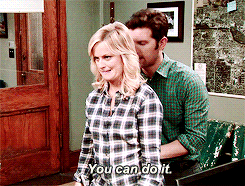Though remote opportunities give you the freedom to work on your terms, they can still be just as challenging as working in-person.
The lack of physical management can cause a learning curve in a lot of interns. On top of learning during your internship, you also have to learn vital lifelong skills to manage your work independently. For first-time remote interns, it can be exhausting to stay productive when nobody is watching. Nevertheless, this is not an impossible task.
While it may seem unlikely and stressful at times, you can do this, and here are some helpful tips that’ll help you stay on track.
1. Make a Separate Work Space
Separating your work area from your bedroom can keep you from doing other unproductive activities, such as taking a nap or binge watching Netflix.
Likewise, having a designated work space, even if it is your kitchen table, allows you to associate that area with productivity. Association of a workspace can put you in the mood to work more easily than working in a space that is associated with sleep or relaxation.
2. Use a Specific Scent or Chew Gum
Studies show that chewing gum can increase productivity. While this study was conducted on test-takers, the same principle can be applied to studying and even working. Pick your favorite gum, preferably a long-lasting one, and stick to it. Once you walk into your workspace, pop a piece of that gum, and over time you will have a more auspicious working environment.
If you aren’t a gum person, you can use a specific scent in the same way. Choose your favorite soothing candle or incense in the same way you would gum. No, don’t ingest it, just use it near your workspace and reap the results.
3. Reward Yourself
Rewarding yourself for all of your hard work can create some positive reinforcement, which will make you work smarter (and not just harder). Create a system so that you take a 15-minute break after 45 minutes of working. Why should you break after working for 45 minutes? This system allows you to track yourself on an hour-to-hour basis, which allows you to easily schedule your work and play time. Plus, working for 45 minutes at a time can help reduce the chance that you will feel overwhelmed by your tasks.
Most importantly, it’s important that your break consists of mindless activities that should be conducted in a different location than your workspace. Eat a snack, or if you aren’t hungry, go for a walk or exercise for a bit. Better yet, you could color a page in an adult coloring book. After all, coloring can reduce stress, which will make you feel reenergized to start working again when your 15 minutes are up.
4. Practice Wrist and Hand Exercises
Repetitive motions, like typing and writing, can cause some serious issues with your hands and wrists. Most commonly, repetitive motions and lack of motion can cause carpal tunnel syndrome. Above are some helpful exercises to make sure your phalanges stay in fine working conditions.
5. Organize Your Desk
Maintaining organization on and around your desk will not only declutter your workspace, but it can also declutter your mind. Plus, an effective organization plan will make it easier for you to find important documents. While organization limits distractions, it is also important to make your workspace comfortable and fun.
6. Decorate Your Office
Although the point of having a tidy desk is to reduce clutter, it is also relevant that you refrain from exterminating clutter entirely. Decorating your office can make your work more comfortable.
Speaking of comfort, splurging on a cozy faux-leather office chair, or even a recliner, might give you enough incentive to sit down and get to work. However, if you want to ensure you get active while you work, you can trade in your stationary seat for an exercise ball. After all, some light exercise can make you more alert, among other helpful benefits.
Though these tips also apply to traditional in-house internships, they can help remote novices do great work from anywhere (even a dorm room!). As basic as these tips may seem when you implement them, they will ensure that your remote internship is anything but basic.
Want to find out more about National Intern Day and how you can win a cash prize? Head over to nationalinternday.com to get the scoop.









